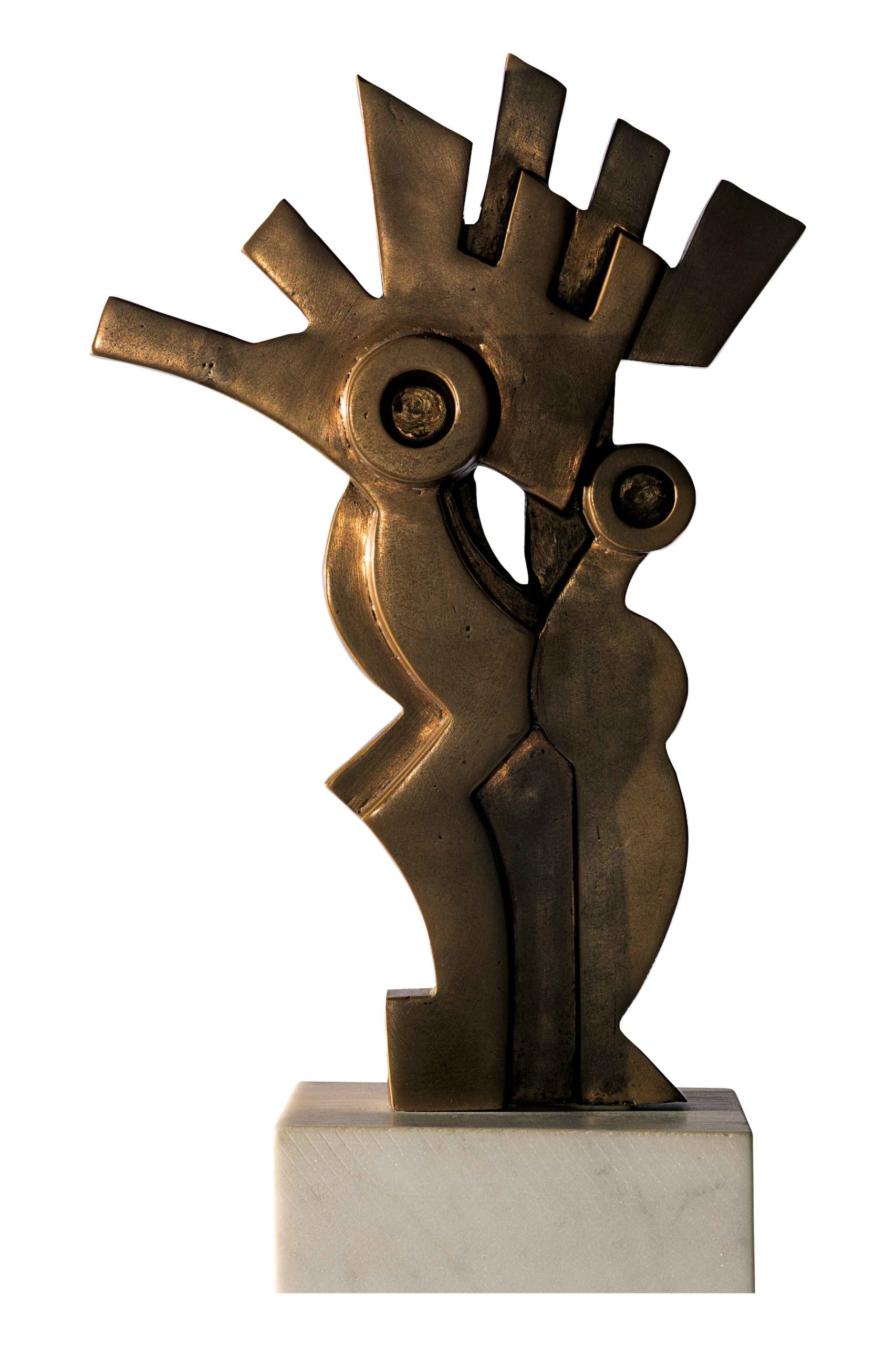Work: Gears
Original sculpture

Original
- Author
- Umberto Mastroianni
- Date
- 1988
- Period
- Contemporary
- Dimensions
- 29 cm high, 20 cm wide, 9,5 cm deep
- Technique
- casting, gilding, patination
- Material
- bronze
- Space
- Entrance
- Travelling
- This work is part of our travelling collection.
Photo: Maurizio Bolognini. Museo Tattile Statale Omero Archive.
Description
“I stole energy from Futurism.” Umberto Mastroianni
“Gears”, a work included in the Museo Omero’s Bello e Accessible travelling section, is a small bronze sculpture (29cm high) created by Umberto Mastroianni in 1988.
“Gears”, a work included in the Museo Omero’s “Bello e Accessible” travelling section, is a small bronze sculpture, approximately 30 centimetres high, created by Umberto Mastroianni in 1988.
The sculpture is an assembly of abstract shapes with vertical momentumconstructed on curved and broken lines. The base is a parallelepiped in white marble which is 12 centimetres high.
At the top, there are two large “toothed crowns”that open out like a fan and overlap at the centre.
Below their intersection is a void, at which sides our fingers can detect two hollow circular cavities.
As they move down, our hands meet a rounded profile on the right and an angular one on the left. Moving to the back, our hands can feel how the profiles narrow in subsequent layers, until becoming one single shape.The artist’s signature is engraved on the back, in the lower part of the sculpture.
The bronze surface is shiny and polished, smooth and pleasant to the touch.
The title “Gears” recalls joints of geometrical volumes that vaguely resemble human figures.This work is part of a series of studies on the machine and its dynamism,by Mastroianni.
Starting from the ’40s, Mastroianni (1910-1998) experimented with abstract art after having studied the great masters of ancient and modern times.
As Maurizio Calvesiwrites, the artist shows “a personality which is genetically inherited by the Futurist momentum, a momentum that – however – had something innate in him, something which was natural to his impetuous inclination as a character and which was also evident from his practical behaviours, like the passion for cars and speed.” (Il Canto della Materia, Carmagnola, 2008).
Works by Umberto Mastroianni (1910-1998) are exhibited in Japan, New York and France, whereas in Italy there are 13 cities which host his monuments to the resistance. Rome is home to the Museo Mastroianni and in Arpino, the artist’s hometown, the Castello Ladislao houses the Fondazione Umberto Mastroianni.
